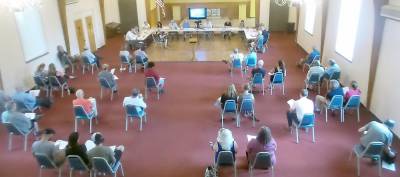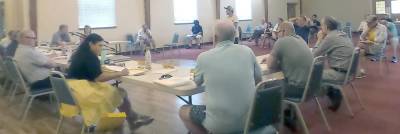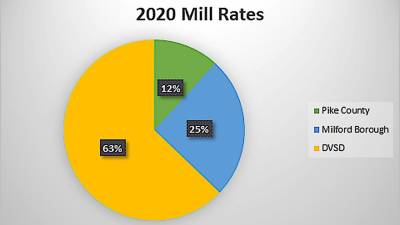Councilman Cooney objects to new borough budget (and everything else)
Milford. Milford Borough Council approves budget with police raises, parking restrictions during elections, and permitting requirements for public demonstrations.


The Milford Borough Council passed its budget on Nov. 16, with only Pete Cooney voting no.
Cooney has consistently voted against the grain on the council. He said no on the budget. He said no to Catharine Street parking restrictions during elections. He said no to permits for public demonstrations. And he said no to the purchase of two police cars.
The new budget, passed after the council instituted the Earned Income Tax (EIT) to bolster revenue, means that the police will get raises and that the millage rate used to calculate property taxes will be decreased.
Cooney is unconvinced.
“EIT is a regressive tax and an assault on working residents and non-residents of Milford Borough,” he told the Courier in an email.
He said the EIT was pushed through by a lame duck council that has appointed members who will not be back in 2022. The public was led to believe the borough was in dire financial trouble but had, as of Sept. 30, actually collected $65,000, he said.
To levy a one percent tax on people who work in the borough but live elsewhere is unfair, said Cooney. Not taxing all borough residents is unfair, he said, as is taxing renters but not the landlords who collect their rents.
Also, he said, if a property owner lives with other people who work in the borough — spouses, children, and others of working age — they would all have to pay the EIT, he said.
Cooney said reducing the millage rate sends a misleading message. Five mills is about $185, which is equivalent to earning $18,500 a year. With the price of housing in Milford Borough, he said, no borough property owner earns only $18,500. More realistically, he said, a couple would have to make at least $100,000 a year to afford a house in the borough, and pay $1,000 in EIT. That would amount to a $815 increase in taxes. Therefore, he said, the EIT is an unfair scale that some councilmembers used to make the tax enticing to residents.
By law, the EIT cannot be earmarked for one specific purpose and must go into the general fund. Cooney said telling the public that services would be reduced, most notably police services, was a scare tactic. The $65,000 surplus contradicts the council’s rationale for pushing through the EIT on July 1, he said.
The council said the EIT can be easily repealed by a simple majority vote of the council.
“We will see,” Cooney said.




